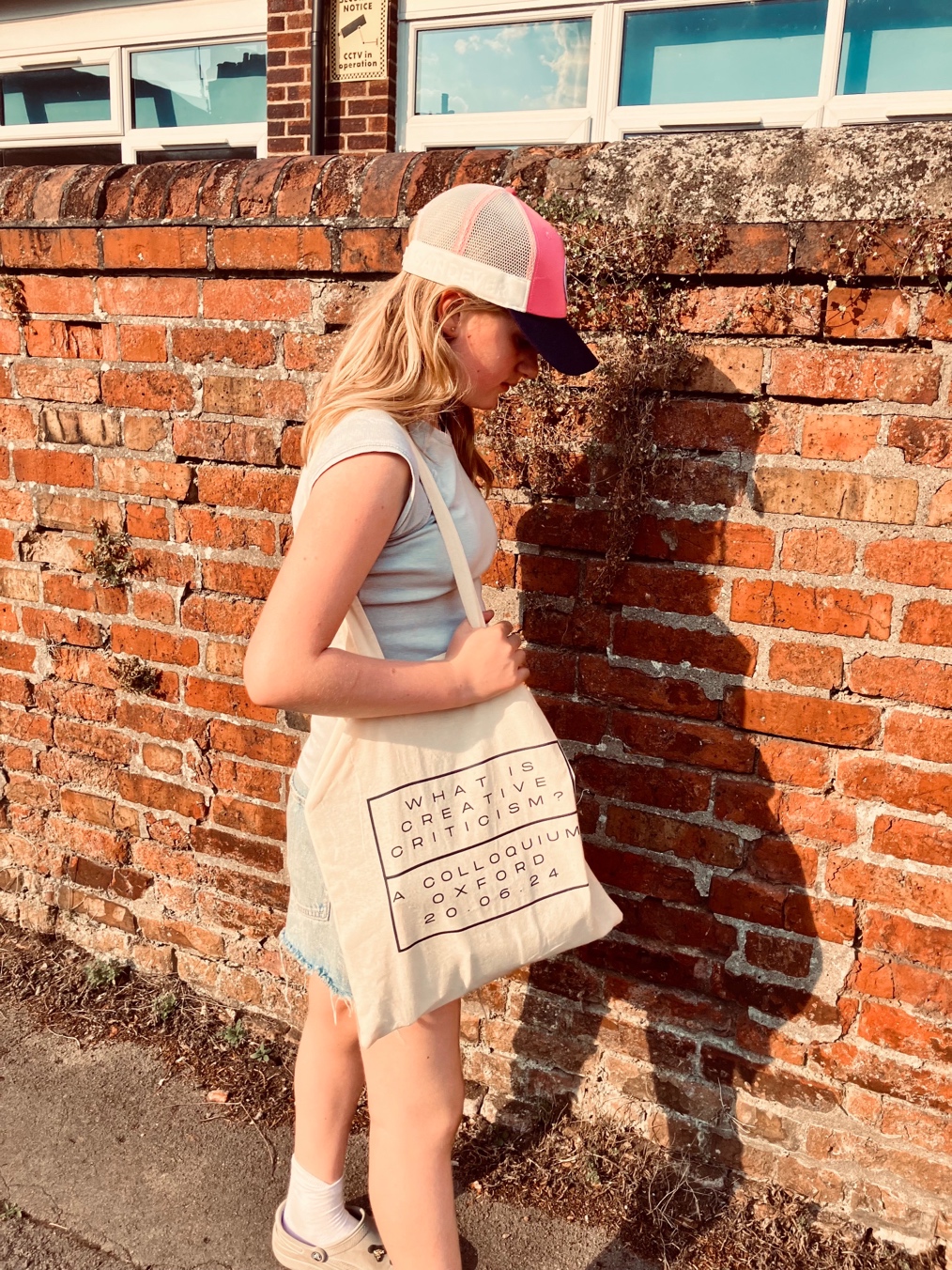
1. totes
standing at the bus stop, and my ‘WHAT IS CREATIVE CRITICISM? A COLLOQUIUM. OXFORD. 20 06 04’ tote bag, has a new owner. Totes were (totes) objects of desire amongst year 7s that summer, and this, as my daughter had recognised, was an excellent specimen. It was also a great colloquium. It gave and it took. It took, in Mary Cappello’s words ‘nothing for granted’. It took, as she puts it, the opportunity to ‘create genealogies of forms that we tacitly endorse’, and to think about why they are so. It took care. And such care taking makes me ask not just what made a colloquium good, but what made a colloquium at all. To stretch the boundaries of the structure, questioning the conventionally understood ideas of where this (or any) form begins or ends.
2. proceedings
conference proceedings are the institutionally accepted follow-on, but what other things might also constitute ‘proceedings’, of a kind? Perhaps to understand the colloquium as a form, we need to think both about what happens within that space, and of the minor forms we take away from it. These forms are, of course, many and various – water bottles and handouts, anecdotes and ideas, secrets and colds.
3. ideas
the tote is of course a convenient metaphor for the life of the post colloquium mind. The bag, like our head, it is a place to hide one’s private thoughts and discoveries from the day– or to hide the fact that one may have gathered nothing at all. We can advertise our affiliation with a brand, repurpose it, pass it on to others, or keep it as a souvenir of somewhere we have been, of time spent. Perhaps the colloquium, like Ursula le Guin’s idea of the novel, is ‘a sack’, or ‘a bag’ of a kinds, ‘holding things in a particular, powerful relation to one another and to us.’
4. stuff
to leave it as a convenient metaphor feels like a missed opportunity, as if its bagginess, its quiddity, is just a peripheral fact. For the gifted bag is, at heart, a literal convenience, intended to one’s life just that little bit easier in a small but definite and purposeful way. It means that you don’t have to drop your stuff on the floor. There is a recognition, in a conference tote, of the basic idea that whatever kind of the life of the mind one is involved with, that one still brings stuff with you, and that you need to take stuff away. That we are people with bodies.
5. feelings
this feeling recognition of our individual and collective embodiment felt vitally important throughout the colloquium, and is, for me, a fundamental part of what creative critical allows – of its stakes. We talked of terminal illness and trauma, love and anger and shame. We talked of books that remained unwritten, or did not dare to be written, kept in loose note form (in bags). Nerves were shared, nerves were assuaged, buildings were signposted, parents of babies felt supported in attending, pizza was eaten. Conferences and colloquia aren’t always like this. (Susannah Thompson’s paper turned what might be seen as the conventionally zoned-out coldness of conference space into darkest comedy).
6. permission
my contribution, then, to this collection of ‘conference proceedings’, is – at heart – to gesture towards something affective. It feels less than theoretically deft, and might well seem a touch daft. Responses like this have some stakes. ‘Formalities preserve us’, as one of my late great favourite poets put it, and it would be safer (better form) to think more formally about it all. But as Geoffrey knew, too much attachment to formality might mean we all end up in aspic. So here I am, sharing (risking) what some might see as my whimsical or slantwise view of the world, formed in anecdotes. But, as Mary Cappello said, at about 10.30 am that morning, maybe the scholar is always ‘stupid’. We ‘stew in stupidity’s juices’. My daftness is made possible because I feel that I was given in that day the space to study, not to preserve forms, or to be on form, but to ‘stew’, stupidly, in and among them. The feeling for feeling, was given renewed, informal and generous permission that day. I carried this with me out of the door. The affirmation of way of being and thinking, a stew, a bag, a kindness, a certain style.
Sophie Ratcliffe is Professor of Literature and Creative Criticism at the University of Oxford, interested in ideas of emotion, the history of how we feel, and how books shape feelings; she is currently working on a project on reading, presence, gender and embodiment called The Child in the Library.